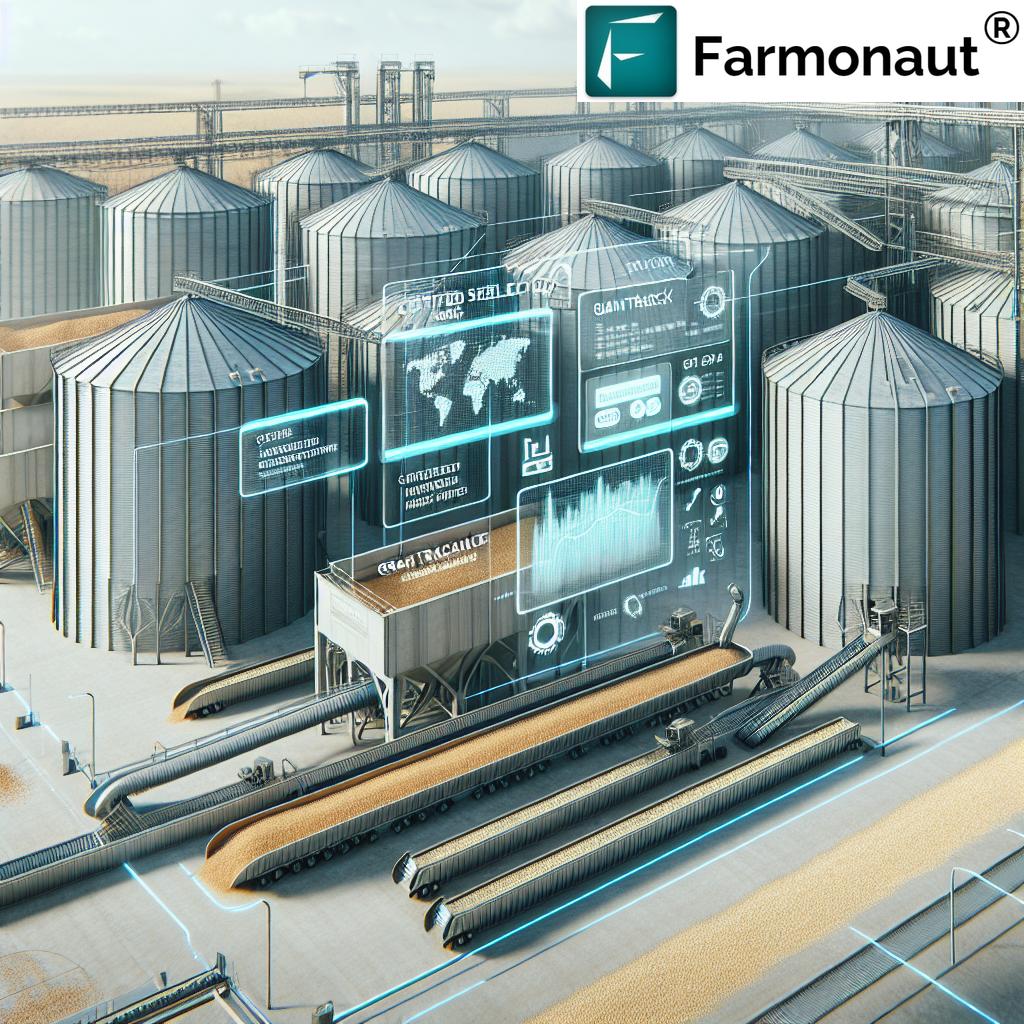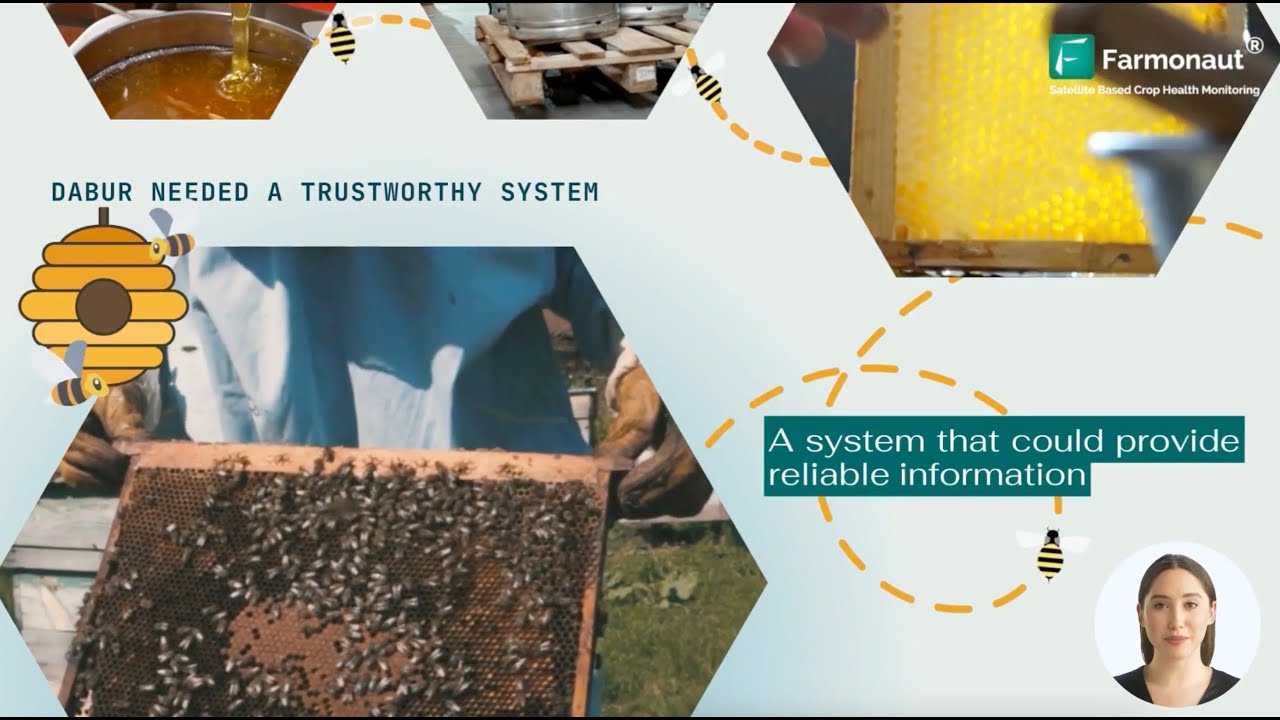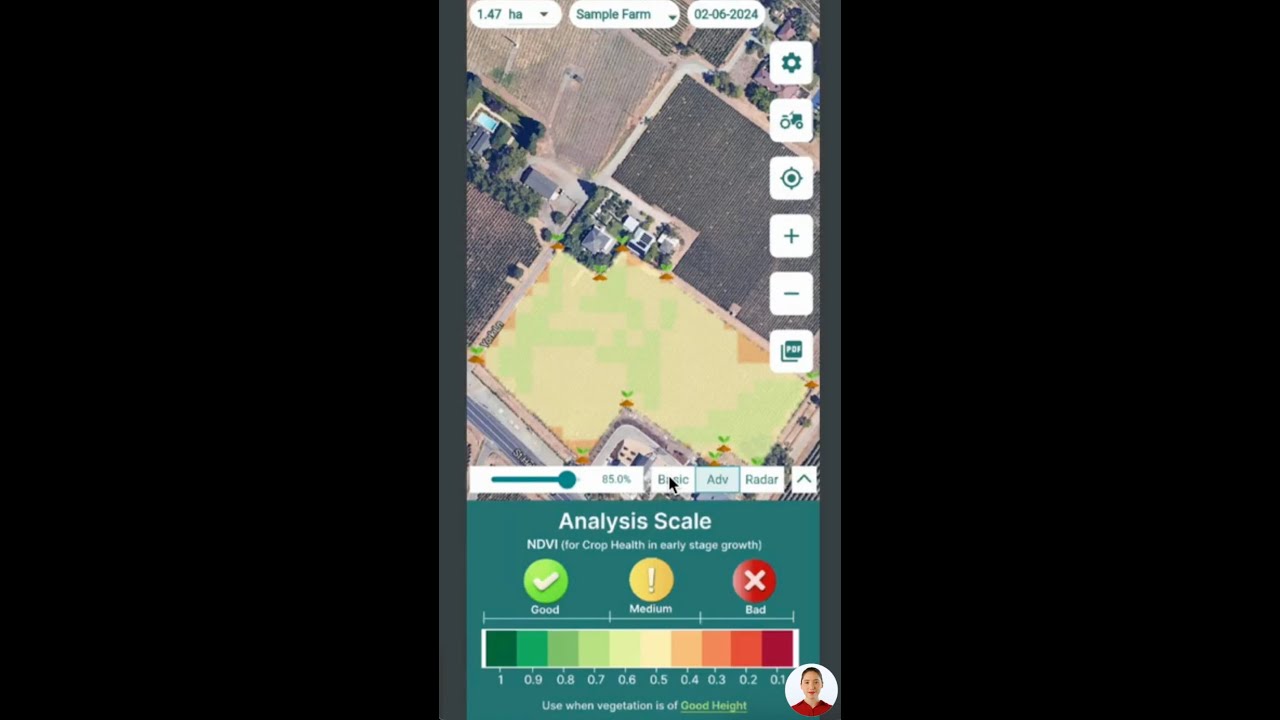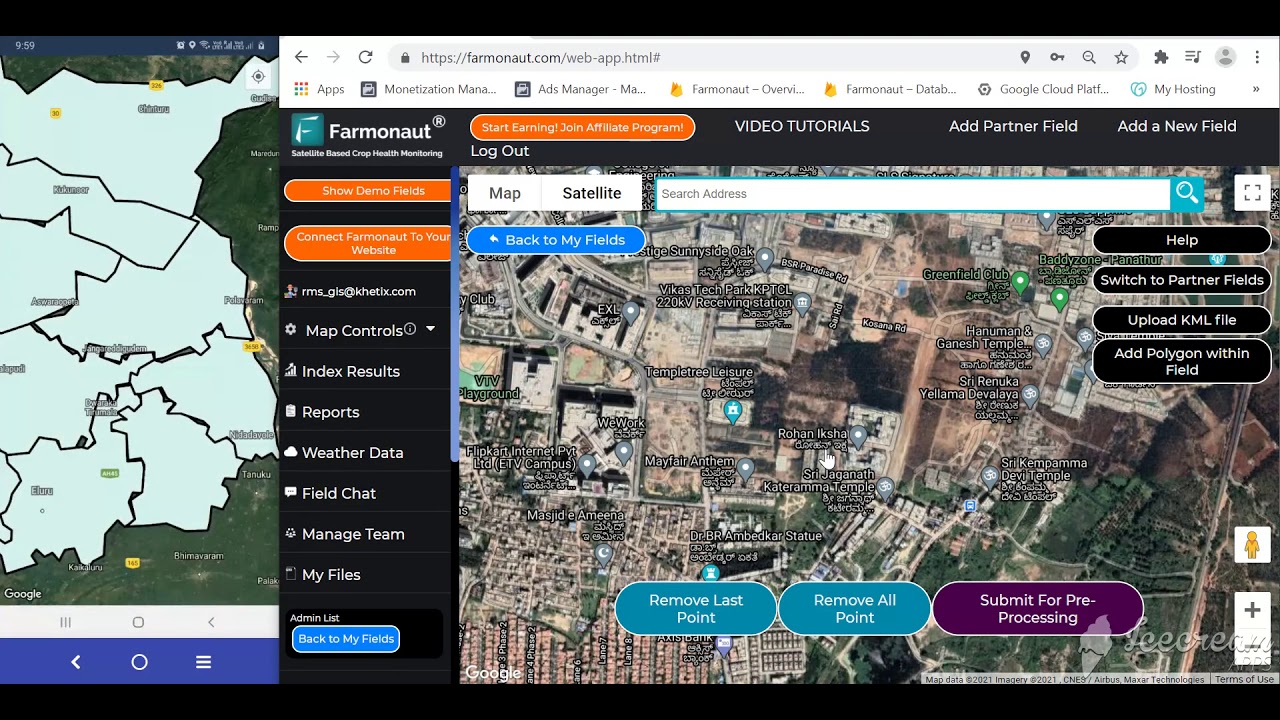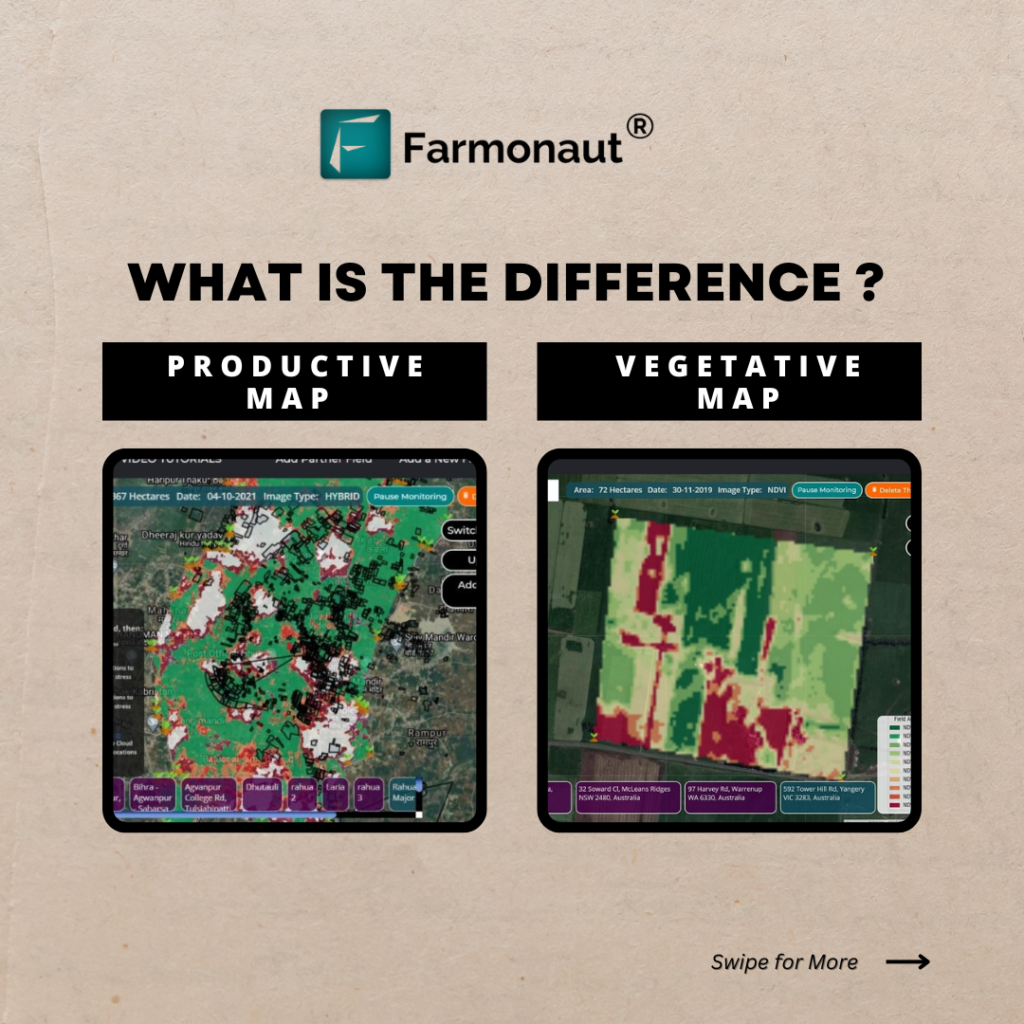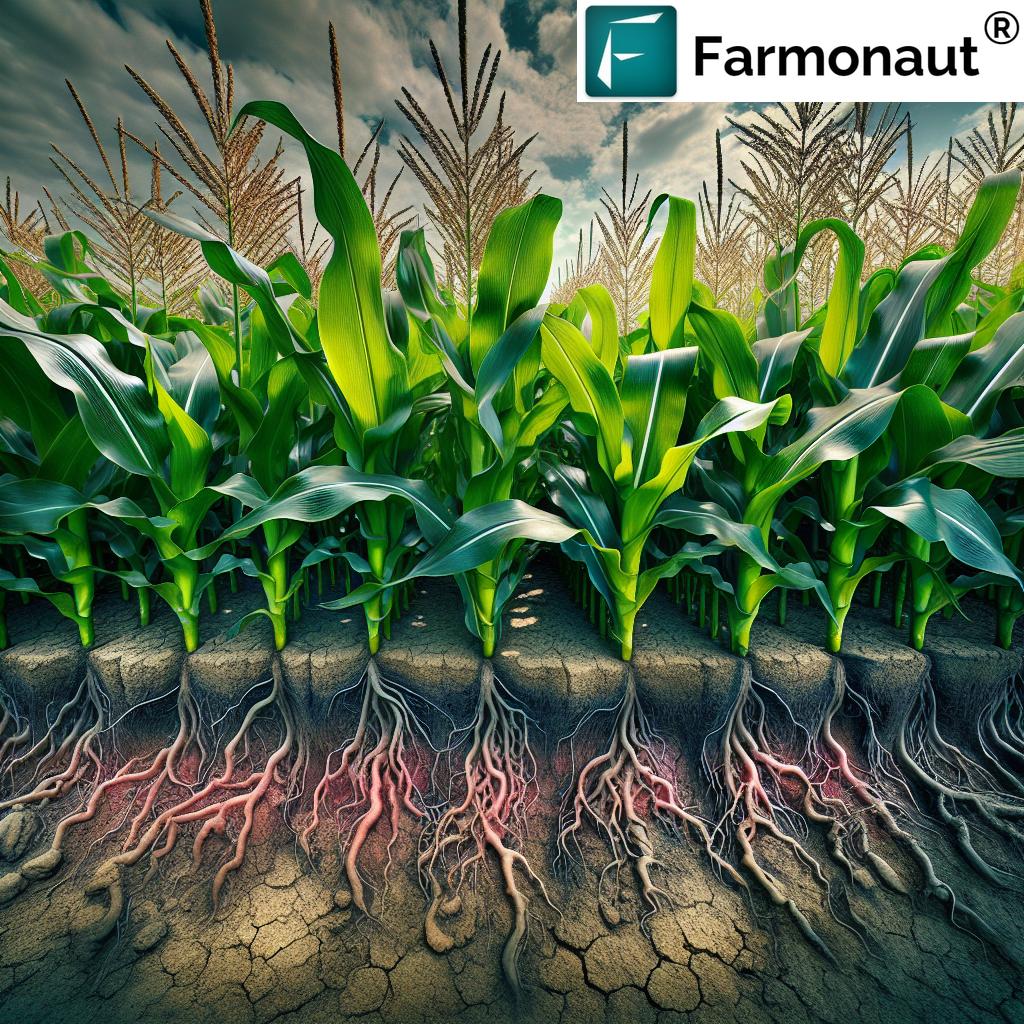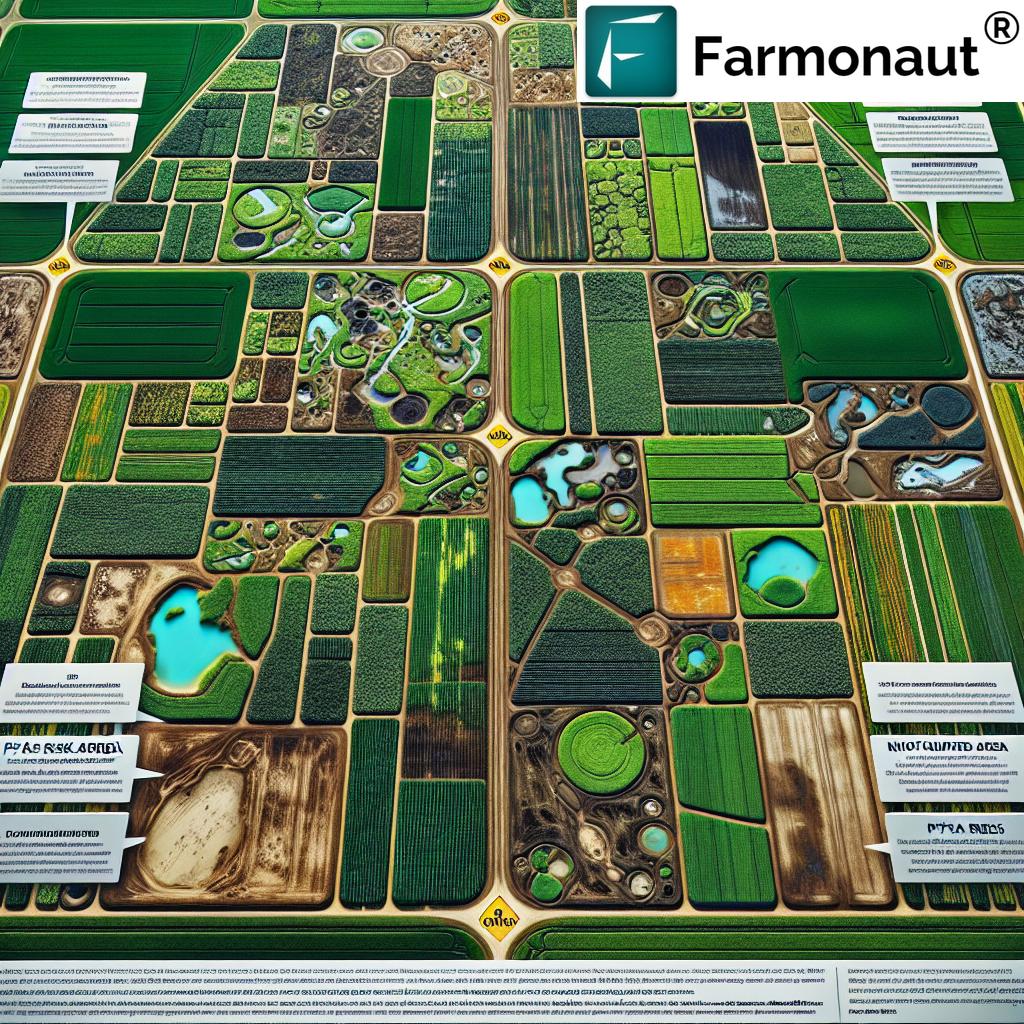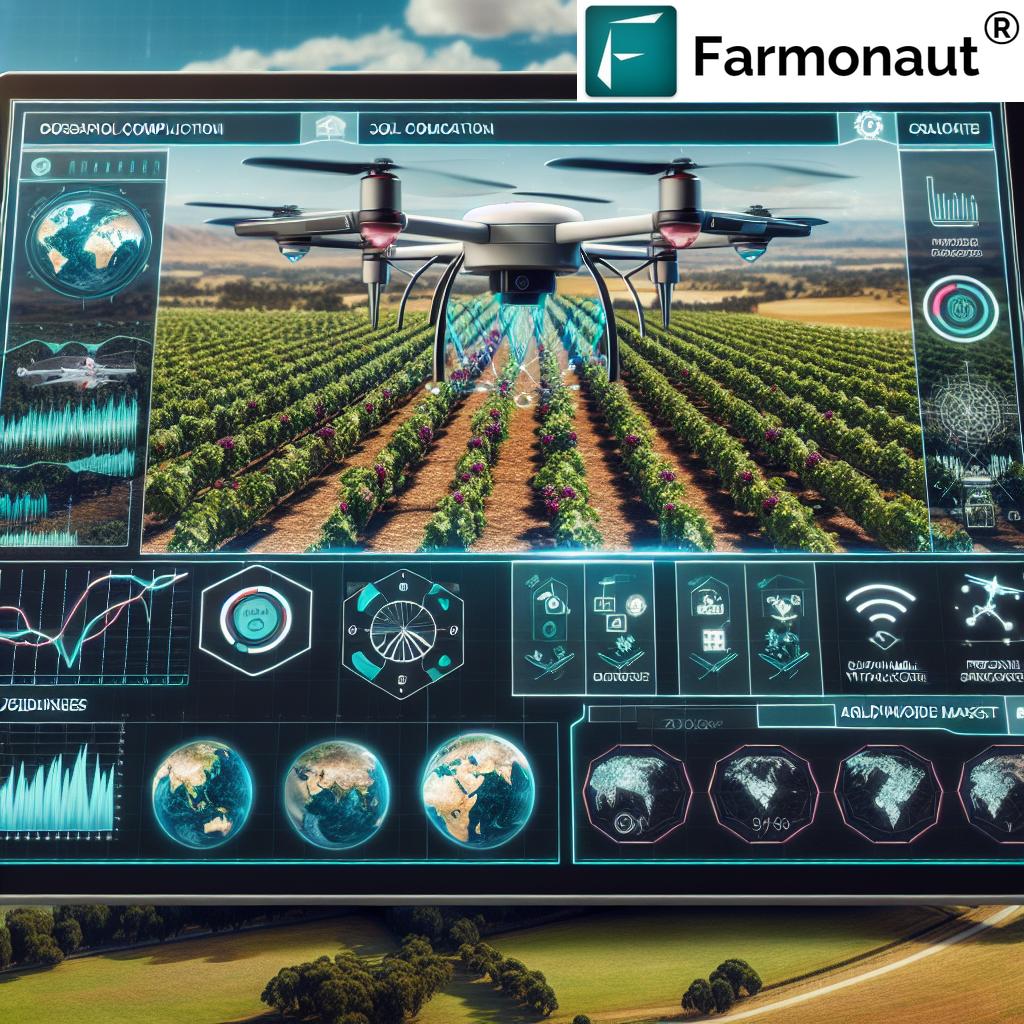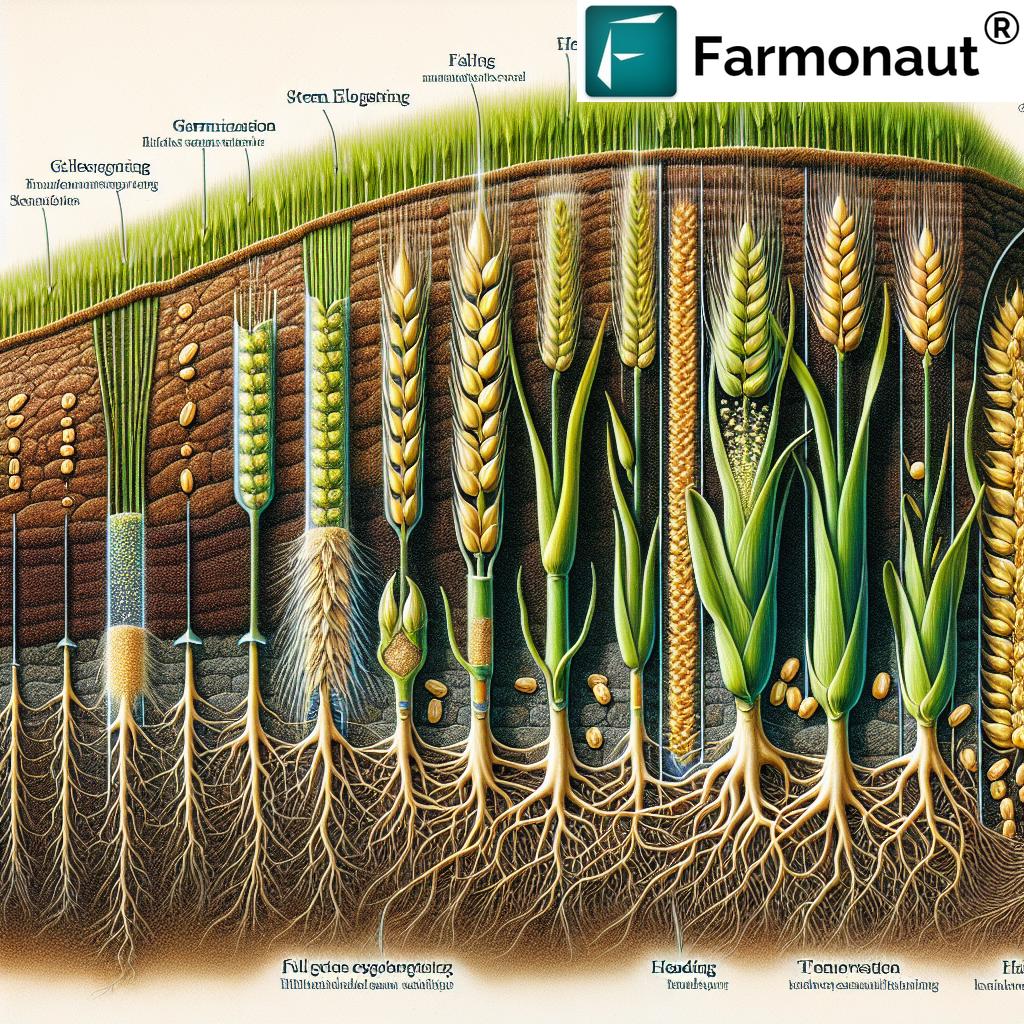Identity-Preserved Grains: 7 Key Traceability Benefits
Table of Contents
- Introduction
- Understanding Identity Preservation in Grains
- The Identity Preservation Process: From Seed to Shelf
- 7 Key Traceability Benefits of Identity-Preserved Grains
- Comparative Benefits Table
- Applications of Identity-Preserved Grains
- The Role of Technology in Identity Preservation
- Challenges in Implementing Identity Preservation Practices
- The Future of Identity-Preserved Grains
- How Farmonaut Empowers Grain Traceability & Identity Preservation
- Frequently Asked Questions (FAQ)
- Farmonaut Subscription Plans
Introduction
In today’s agricultural landscape, identity preserved grains are reshaping how we view quality, safety, and traceability in food systems. Consumers, producers, and everyone along the supply chain are placing growing emphasis on transparency, premium grain products, and sustainability. But what sets identity preservation apart, and why are these specialized grain systems gaining such traction globally?
Identity-preserved grains are agricultural products that are meticulously segregated and tracked from seed selection through planting, cultivation, harvesting, storage, handling, processing, and distribution. This entire process is engineered to maintain specific quality traits, prevent contamination, and deliver consistent, traceable products. Such practices ensure that the end product meets precise standards, offering a unique set of benefits for both producers and consumers—ranging from quality assurance to improved supply chain transparency.
Let’s dive deeper into this world of identity preservation practices and discover the critical traceability benefits that are transforming the global grain industry.
Understanding Identity Preservation in Grains
At its core, identity preservation refers to the strict protocols and management practices that maintain the distinct traits and qualities of a crop. Unlike conventional grain commerce—where varieties and batches are often commingled—identity preservation involves segregated grain handling to prevent contamination and mixing, ensuring unique characteristics are protected.
The goal is simple: deliver grain products with a known origin, maintained genetic purity, and consistency in important compositional or functional attributes. This is increasingly vital as consumers demand transparency, food producers compete for premium markets, and regulators tighten standards on food safety and labeling.
- Quality Assurance: Protecting genetic and compositional traits.
- Traceability: Providing complete records from seed to end product.
- Market Differentiation: Offering unique selling points such as non-GMO, high-protein, or organic designation.
According to Soy & Grains Alliance, identity-preserved grain systems are rapidly becoming a cornerstone in the food industry and beyond, setting new benchmarks for processing and supply chain management.
The Identity Preservation Process: From Seed to Shelf
How do producers ensure that identity-preserved grains maintain their distinct characteristics? The answer lies in a rigorous, end-to-end process beginning with certified seed selection and ending with detailed traceability records:
- Seed Selection: Only certified seeds with documented genetic traits and free from contaminants are used (source). This forms the essential foundation for final product quality.
- Cultivation: Farmers implement tailored agronomic practices—including soil preparation, optimal planting and irrigation schedules, and targeted pest management—to preserve the grain’s identity.
- Harvesting: Crops are harvested at optimal times to capture peak quality. Careful handling prevents the mixing of different grain varieties.
- Storage and Handling: Post-harvest grains are stored in dedicated facilities to maintain segregation. Detailed records track origin, batch, and handling processes.
- Processing and Distribution: Before reaching consumers, identity-preserved grains undergo controlled processing that maintains essential qualities. Every transfer and transformation is documented, providing end-to-end traceability.
Identity preservation practices make use of modern software, sensors, and protocols to guarantee the grain traceability all the way to the consumer.
7 Key Traceability Benefits of Identity-Preserved Grains
The true power of identity-preserved grains lies in their characteristic benefits. Below, we highlight seven definitive ways identity preservation practices transform the grain supply chain for producers, consumers, and the entire industry.
1. Product Consistency
Identity preservation assures that every batch of grain meets carefully defined product standards. Uniformity in nutritional attributes, flavor, color, and functional properties becomes reality—not just an aspiration. This consistency is essential for:
- Food processors who require stable raw materials for branded goods.
- Animal feed specialists demanding predictable nutritional profiles.
- Biofuel producers who depend on specific chemical compositions.
Example: A bakery brand using identity-preserved wheat flour can deliver loaves that taste, look, and behave the same with every batch—strengthening customer loyalty.
2. Grain Supply Chain Transparency
By leveraging grain traceability, each step—from seed to end product—is documented with detailed records. This transparency provides:
- Rapid root-cause analysis during food safety incidents.
- Proof of origin and production practices for compliance and certification.
- Greater consumer trust and satisfaction.
Supply chain transparency is becoming a legal requirement in many regions. Identity preservation is the most reliable way to achieve it.
Explore Farmonaut’s blockchain-powered traceability platform — designed for transparent, tamper-proof grain traceability throughout your chain.
3. Quality Assurance in Grains
Using certified seed selection, controlled cultivation, and dedicated handling, identity-preserved grains deliver robust quality assurance. Every stage is checked, and quality is measured using advanced analytical tools. Key benefits include:
- Enhanced food safety: Minimizing contamination and mycotoxin risks.
- Regulatory compliance: Meeting or exceeding global quality standards.
- Product recalls: Faster, more accurate, and often substantially reduced. (Up to 60% lower recall incidence.)
Premium brand owners are willing to pay more for proven, consistently high-quality ingredients.
4. Fraud Prevention & Authenticity
With every lot tracked and documented, it becomes impossible to pass off poor quality, adulterated, or fraudulent batches as genuine. Blockchain technologies—like those implemented in Farmonaut’s solutions—further ensure authenticity at every step.
- Mitigates fraud, counterfeiting, and substitution in the grain trade.
- Protects both brand reputation and consumer safety.
By preventing grain contamination, brands protect their image, avoid costly recalls, and build lasting trust.
Comparative Benefits Table: Identity-Preserved Grains vs. Traditional Grain Systems
| Benefit | Traditional Grains | Identity-Preserved Grains | Estimated Impact |
|---|---|---|---|
| Product Consistency | Variable; batches often differ by nutritional content or traits | Uniform, precise traits and stable attributes | Higher by ~30% |
| Supply Chain Transparency | Limited; incomplete traceability | Full, end-to-end traceability with digital records | Full traceability |
| Quality Assurance | Random checks; inconsistent quality | Continuous, documented quality control | Significant improvement |
| Fraud Prevention | High risk of mixing/adulteration | Blockchain or digitally secured, prevents fraud | Near elimination of fraud |
| Supply Chain Efficiency | Manual, error-prone processes | Automated, traceable, efficient logistics | ~25% faster handling |
| Market Access & Premium Pricing | Limited; non-differentiated commodity pricing | Access to premium, niche, and export markets | Premium prices (+10-30%) |
| Regulatory Compliance & Recall Reduction | Difficult, slow recalls; incomplete records | Rapid, targeted recalls; regulatory ready | Up to 60% fewer recalls |
5. Supply Chain Efficiency
With automated grain traceability, producers can optimize the supply chain—from on-farm management to logistics and delivery—reducing errors, misallocated loads, and delays.
- Faster batch recalls (should an issue arise)
- Reduction in manual paperwork and labor costs
- Optimized transportation of grain products
Efficient supply chains mean lower operating costs and a reduced carbon/environmental footprint—an important goal for modern agribusiness.
6. Market Access & Premium Pricing
In today’s market, consumers and bulk buyers actively seek out identity-preserved grains for their unique qualities. Producers committed to these practices gain:
- Access to niche and value-added grain markets (organic, non-GMO, specialty varieties)
- Higher prices (often 10–30% above commodity rates)
- Long-term contracts with food manufacturers and international buyers
Premium grain products find ready demand among health-conscious shoppers, gourmet food makers, and specialty processors—underscoring the financial benefit of identity preservation.
7. Regulatory Compliance & Recall Reduction
With identity preservation practices, every grain consignment is fully traceable and meets stringent national and international food safety regulations. This makes:
- Certification for organic, halal, kosher, and similar markets much simpler.
- Recall notifications precise—rapidly isolating and removing only the affected product, instead of destroying entire shipments.
For producers facing increasing audits and compliance scrutiny, identity-preserved grains are a pathway to risk mitigation and operational resilience.
Applications of Identity-Preserved Grains Across Industries
The demand for identity-preserved grains is rising sharply in several industries, each with its own rationale:
- Food Industry: Manufacturers require consistent ingredients—such as high-protein soy or gluten-free grains—for reliable, branded products. Special flavors or nutritional targets fuel traceability and quality assurance in grains.
- Animal Feed: Livestock producers use identity-preserved feed to guarantee targeted nutritional value and avoid contaminants.
- Biofuel Production: Specific grain varieties are needed for optimal biofuel conversion. Preservation practices ensure the desired chemical composition.
- Agricultural Exports: Meeting import country standards is easier with traceable products, making identity preservation a prerequisite for lucrative export contracts.
The Role of Technology in Grain Traceability & Identity Preservation
Modern technology is the linchpin of successful identity preservation. These innovations make possible what manual processes never could:
- Digital Traceability Systems: Platforms and mobile apps track grains from field to consumer, storing data securely in the cloud or on blockchain systems—such as those found in the Farmonaut Traceability solution.
- Quality Testing Tools: Sensors, on-site DNA testing, rapid protein checks, and other analytical devices enhance quality control.
- Automated Supply Chain Management: GPS, IoT, and resource management software streamline logistics, storage, and handling.
In fact, over 90% of identity-preserved grain systems use digital traceability tools for supply chain transparency. This data-driven framework powers grain traceability, risk management, and continuous quality improvement.
For advanced, satellite-driven crop management—optimizing everything from soil preparation to harvest timing—explore our large scale farm management platform.
Challenges in Implementing Identity Preservation Practices
While identity preservation offers exceptional benefits, it requires careful management and comes with certain challenges:
- Increased Costs: Dedicated storage, handling, and traceability technology add to production costs. According to a Mississippi study, identity-preserved soybeans may increase costs by $0.46 per bushel.
- Infrastructure Requirements: New or upgraded facilities are necessary to prevent mixing and contamination.
- Market Uncertainty: Premium markets can fluctuate, risking investments by producers.
- Training & Management Complexity: Farmers and handlers must adhere to rigorous protocols at every step.
Nonetheless, as technology evolves and the market for high-quality, differentiated grains grows, the ROI for identity preservation continues to rise.
The Future of Identity-Preserved Grains: Trends & Opportunities
As global consumers demand transparency and premium food products, and as sustainable grain production becomes the norm, identity-preserved grains will play a growing role worldwide. Blockchain, advanced sensors, remote monitoring, and AI-driven analytics will fuel this revolution—making identity preservation accessible and affordable.
- More farmers adopt digital solutions like QR-coded batch-level tracking.
- Regulatory bodies increasingly demand supply chain verification for food safety.
- Brands embrace identity-preserved grains for their unique marketing appeal.
- Sustainable farming practices become a differentiator and necessity.
Exciting developments will continue in areas such as carbon footprint monitoring and resource optimization—benefiting both the environment and the bottom line.
How Farmonaut Empowers Grain Traceability & Identity Preservation
At Farmonaut, we are dedicated to making precision agriculture, supply chain transparency, and sustainability accessible for every farmer and agribusiness.
- Real-time Satellite Monitoring: Our platform uses multispectral satellite imagery to assess vegetation health, soil moisture, and more. This empowers better crop management and prevents contamination.
- AI-driven Advisory: We offer advanced AI tools for personalized, data-driven farm recommendations—optimizing planting, irrigation, and pest management.
- Blockchain-based Product Traceability: Our traceability solutions enable full grain traceability from farm to consumer, using blockchain to secure, verify, and record every batch and process.
- Efficient Resource Management: Through fleet and logistics tools and carbon footprint tracking, we help optimize operations and promote eco-friendly production.
Our mission is to democratize access to high-tech identity preservation practices and deliver value from certified seed selection through to the final product. With mobile, web, and API access, the Farmonaut ecosystem supports everyone from local farmers to global agrifood brands.
Developers and researchers can integrate our satellite and weather datasets into their own systems via Farmonaut’s API or find technical details in our developer documentation.
For those seeking sustainability, our satellite-based crop loan and insurance validation lowers fraud risk while providing transparent verification.
Frequently Asked Questions (FAQ) – Identity Preserved Grains
1. What are identity-preserved grains?
Identity-preserved grains are crops that are rigorously segregated, tracked, and documented throughout their lifecycle, starting from certified seed selection to final processing and distribution. The process ensures the grains’ unique qualities, traits, and origin are maintained, delivering quality assurance and robust traceability.
2. What are the main benefits of identity preservation in grains?
Identity preservation practices offer key benefits such as consistent product quality, supply chain transparency, rapid recall capability, fraud prevention, supply chain efficiency, better market access and premium pricing, and easier regulatory compliance.
3. How does technology support identity-preserved grains?
Technology—especially digital platforms, sensors, and blockchain—makes it possible to accurately track every grain batch, analyze quality at each stage, and secure digital records, dramatically reducing risks of mixing and errors.
4. Who benefits from identity-preserved grains?
- Producers achieve price premiums, access niche markets, and gain operational resilience.
- Consumers get safer, more consistent, higher-quality products with verified origin.
- Processors, distributors, and regulators benefit from streamlined documentation, recalls, and compliance.
5. Does identity preservation increase costs?
Yes, production costs can rise due to dedicated infrastructure, tracking technology, and additional quality control. However, these are often offset by higher market prices, risk reduction, and improved supply chain efficiency.
Farmonaut Subscription Plans
Want to experience next-generation grain traceability and diagnostic technologies? Explore our flexible plans below and start transforming your farm operations today!
Conclusion
Identity-preserved grains are setting new benchmarks for quality, traceability, and sustainability in global agriculture. Through a strict end-to-end identity preservation process—backed by technology and data—producers can deliver premium grain products while meeting regulatory, market, and consumer demands. The future is transparent, secure, and sustainable because of these innovations.
At Farmonaut, we’re proud to enable this revolution by providing affordable, advanced, and scalable platforms for precision agriculture and grain traceability.


